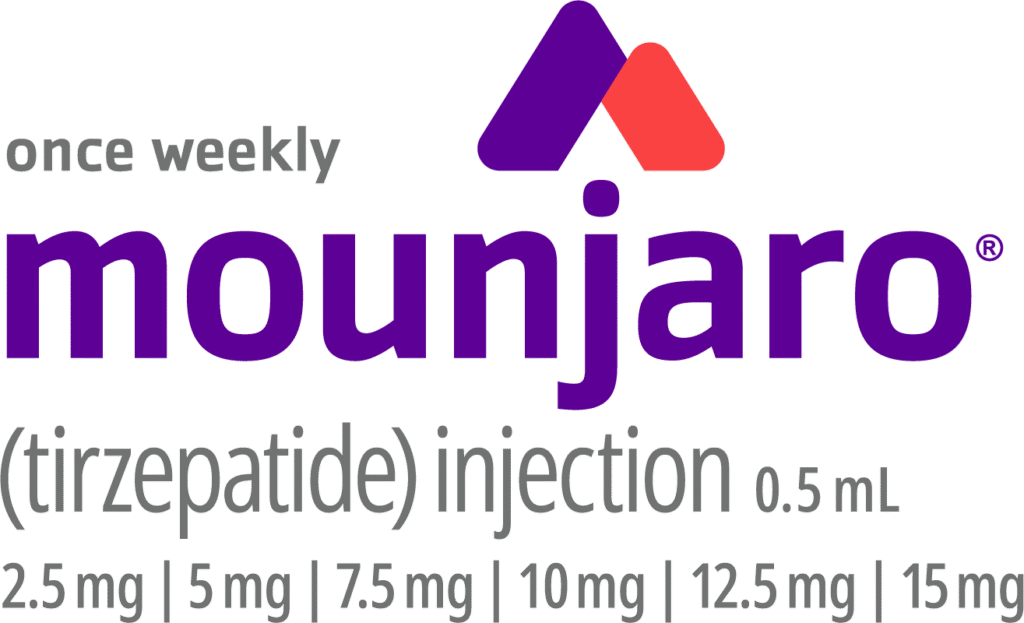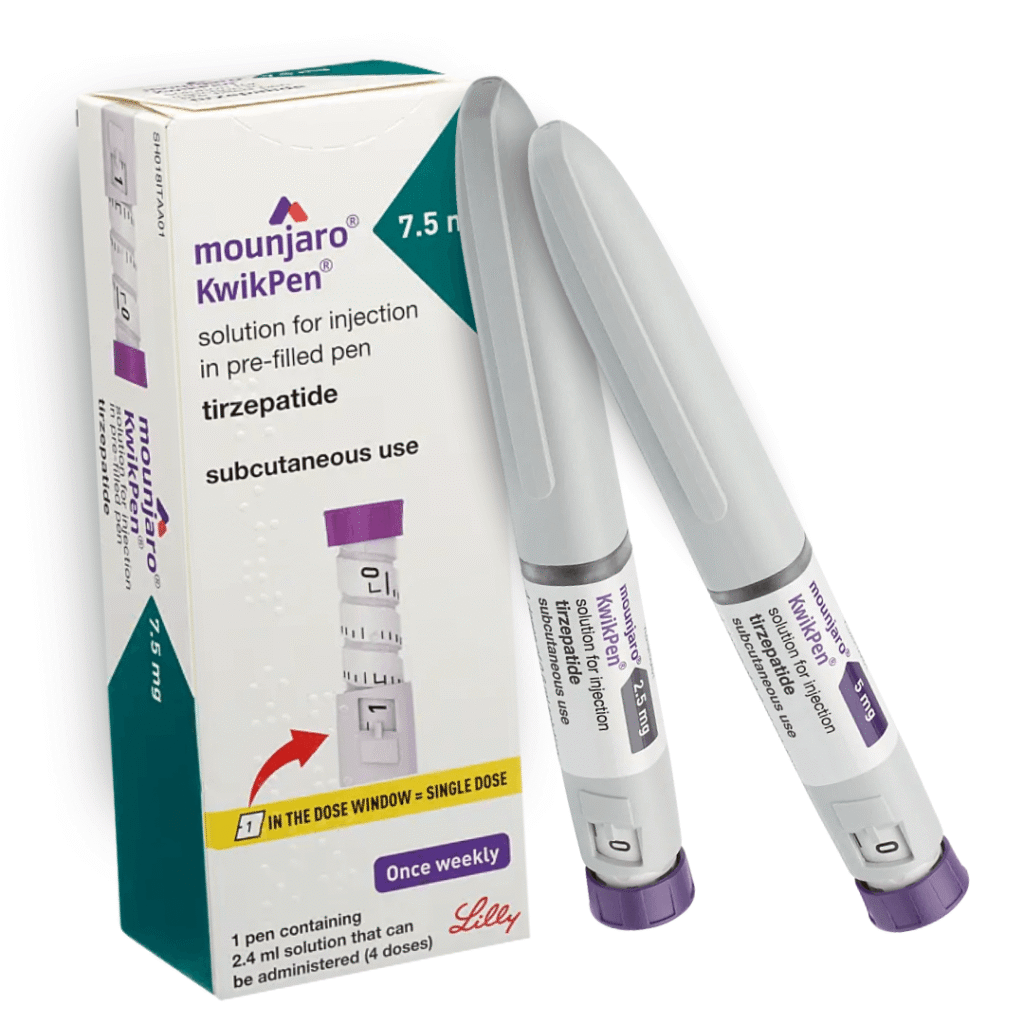Mounjaro weight loss results demonstrate unprecedented effectiveness with 20% average weight reduction over 72 weeks. This breakthrough medication outperforms leading alternatives whilst offering genuine hope for UAE residents struggling with obesity-related health challenges. Medical supervision remains absolutely essential for optimal outcomes and comprehensive safety monitoring.
The tirzepatide compound targets dual hormone pathways regulating blood sugar and appetite control simultaneously. Clinical trials consistently show remarkable weight reduction across diverse patient populations including Middle Eastern demographics. For UAE residents facing diabetes and obesity complications, Mounjaro represents a genuine breakthrough in modern medical weight management.
Healthcare professionals across Dubai and Abu Dhabi increasingly prescribe Mounjaro following comprehensive patient evaluations. The treatment requires dedicated lifestyle modifications including structured eating patterns and regular physical activity. Success depends entirely on patient commitment combined with professional medical oversight throughout the complete treatment journey.
Understanding Mounjaro’s Revolutionary Dual-Action Mechanism
Mounjaro functions through combined glucose-dependent insulinotropic polypeptide and glucagon-like peptide-1 receptor activation. This sophisticated dual mechanism distinguishes it dramatically from single-pathway medications currently available in UAE healthcare markets. The innovative approach delivers superior appetite suppression alongside enhanced insulin sensitivity.
Clinical research demonstrates significant improvements in metabolic markers extending far beyond weight reduction alone. Patients experience substantially decreased food cravings, improved blood sugar stability, and enhanced satiety signals. These physiological changes create sustainable eating patterns without conscious calorie restriction or extreme dietary measures.
The medication mimics natural hormones your body produces after eating, essentially amplifying signals that indicate fullness. This biological approach feels more natural than appetite suppressants or stimulant-based weight loss medications. Many patients report feeling satisfied with smaller portions without experiencing hunger or food obsession.
UAE residents particularly benefit from this mechanism given regional dietary patterns and cultural eating practices. The medication works regardless of cuisine preferences, supporting weight loss whilst maintaining cultural food connections. This flexibility proves crucial for long-term treatment adherence and lifestyle sustainability.

Mounjaro Outperforms Leading Alternatives Significantly
Comprehensive 2024 research confirms Mounjaro’s superior effectiveness compared to popular alternatives like Ozempic and Wegovy. Patients taking Mounjaro proved twice as likely to achieve 10% body weight reduction. They were three times more likely to reach 15% weight loss targets.
The landmark 72-week study revealed average weight reduction of 20% with Mounjaro compared to 14% with Wegovy. These results represent substantial differences that translate to meaningful health improvements. Patients experienced enhanced cholesterol profiles and better blood sugar control alongside weight reduction.
These comparative advantages stem from Mounjaro’s dual-hormone targeting approach. Whilst competitors focus solely on GLP-1 pathways, Mounjaro additionally activates GIP receptors. This comprehensive mechanism delivers more powerful appetite regulation and metabolic enhancement simultaneously.
For UAE patients comparing treatment options, these performance differences prove significant. The enhanced effectiveness may justify higher costs through improved health outcomes and reduced obesity-related complications. Healthcare providers increasingly recommend Mounjaro as first-line treatment for qualifying patients.
Managing Side Effects and Safety Considerations
Clinical trials reveal 77-79% of participants experienced at least one side effect during treatment. However, most effects remain manageable with proper medical supervision and gradual dose adjustment. Only 6% of patients discontinued treatment due to intolerable side effects.
Common digestive issues include nausea, constipation, diarrhoea, and stomach discomfort. These symptoms typically diminish as your body adjusts to the medication over several weeks. Starting with low doses and gradual increases helps minimise initial discomfort significantly.
Hair loss affects approximately 5% of patients, though this often relates to rapid weight loss rather than direct medication effects. Nutritional support and adequate protein intake help maintain hair health during treatment. Most hair-related concerns resolve once weight stabilises.
Some patients report dental issues or halitosis during treatment. Maintaining excellent oral hygiene and staying well-hydrated helps address these concerns. Regular dental checkups become particularly important whilst taking Mounjaro for comprehensive health monitoring.
Serious risks include potential pancreatitis and pancreatic cancer links, though research continues evaluating these connections. Patients must monitor for severe abdominal pain, persistent nausea, or vomiting. Immediate medical attention is required if serious symptoms develop.

Gender Differences in Mounjaro Response Patterns
Research reveals interesting gender-based differences in treatment outcomes and side effect profiles. Women achieved 22% average body weight reduction compared to 18% for men. However, men reported fewer digestive side effects like nausea and vomiting.
Men typically engage less frequently with weight-loss programmes despite facing higher health risks. They develop visceral fat accumulation, cardiovascular complications, and type 2 diabetes at lower BMI levels. This pattern makes proactive treatment particularly important for male patients.
Dr. Michael Crotty emphasises that men often delay seeking weight-loss treatments whilst facing earlier health risks. Social stigma affects men differently, with less motivation for appearance-based weight loss. However, health-focused messaging proves more effective for male patient engagement.
Women demonstrate stronger treatment adherence partly due to social pressures around weight management. This motivation translates to better long-term outcomes when combined with medical supervision. Female patients often embrace comprehensive lifestyle changes more readily.
UAE’s cultural context adds complexity to gender-based treatment approaches. Healthcare providers must consider social expectations, family dynamics, and cultural attitudes towards weight management. Personalised treatment plans addressing individual circumstances prove most effective.
Psychological and Emotional Treatment Considerations
Weight loss journeys involve significant psychological adjustments extending beyond physical changes. Patients must prepare for altered body image, changed social dynamics, and lifestyle modifications. Professional support becomes crucial for navigating these transitions successfully.
Mental health impacts include relationship changes, identity shifts, and emotional responses to rapid transformation. Some patients experience anxiety or depression during significant weight loss phases. Counselling support helps process these complex emotional aspects effectively.
Family dynamics often shift as patients adopt healthier eating patterns and increased physical activity. Spouses and children may need education about treatment requirements and lifestyle changes. Support system involvement significantly improves long-term success rates.
Social situations requiring food navigation become more complex during treatment. Patients learn strategies for maintaining treatment compliance whilst participating in cultural and business dining events. UAE’s social dining culture requires particular attention and planning.

Maximising Treatment Success Through Comprehensive Approach
Mounjaro proves most effective when combined with professional medical supervision, structured nutrition plans, and regular physical activity. This comprehensive approach addresses multiple factors contributing to obesity and metabolic dysfunction. Isolated medication use without lifestyle modifications yields suboptimal results.
Nutritional counselling helps patients develop sustainable eating patterns that complement medication effects. Registered dietitians familiar with UAE cultural foods provide practical meal planning and preparation guidance. This support proves essential for long-term success.
Exercise programmes tailored to individual fitness levels and preferences enhance treatment outcomes significantly. Physical activity improves insulin sensitivity, preserves muscle mass during weight loss, and supports mental health. UAE’s climate requires creative approaches to maintaining consistent activity levels.
Regular monitoring appointments allow healthcare providers to adjust dosages, address side effects, and track progress comprehensively. Blood tests monitor metabolic markers whilst ensuring treatment safety. This medical oversight proves essential for optimal outcomes.
Long-Term Implications and Future Considerations
Ongoing research continues evaluating Mounjaro’s long-term safety profile and effectiveness beyond initial trial periods. Current evidence suggests sustained benefits with continued use, though long-term data remains limited. Patients must understand treatment may require extended duration for maintained results.
Cost considerations affect treatment accessibility for many UAE residents. Insurance coverage varies significantly between providers and individual policies. Patients should investigate coverage options and potential assistance programmes before beginning treatment.
Healthcare system integration continues evolving as more providers gain experience with Mounjaro prescribing. Training programmes ensure medical professionals understand optimal patient selection, monitoring protocols, and side effect management. This education improves treatment outcomes across healthcare facilities.
Future developments may include combination therapies, improved formulations, or alternative delivery methods. Research continues exploring optimal treatment protocols and patient selection criteria. These advances may enhance effectiveness whilst reducing side effects.



